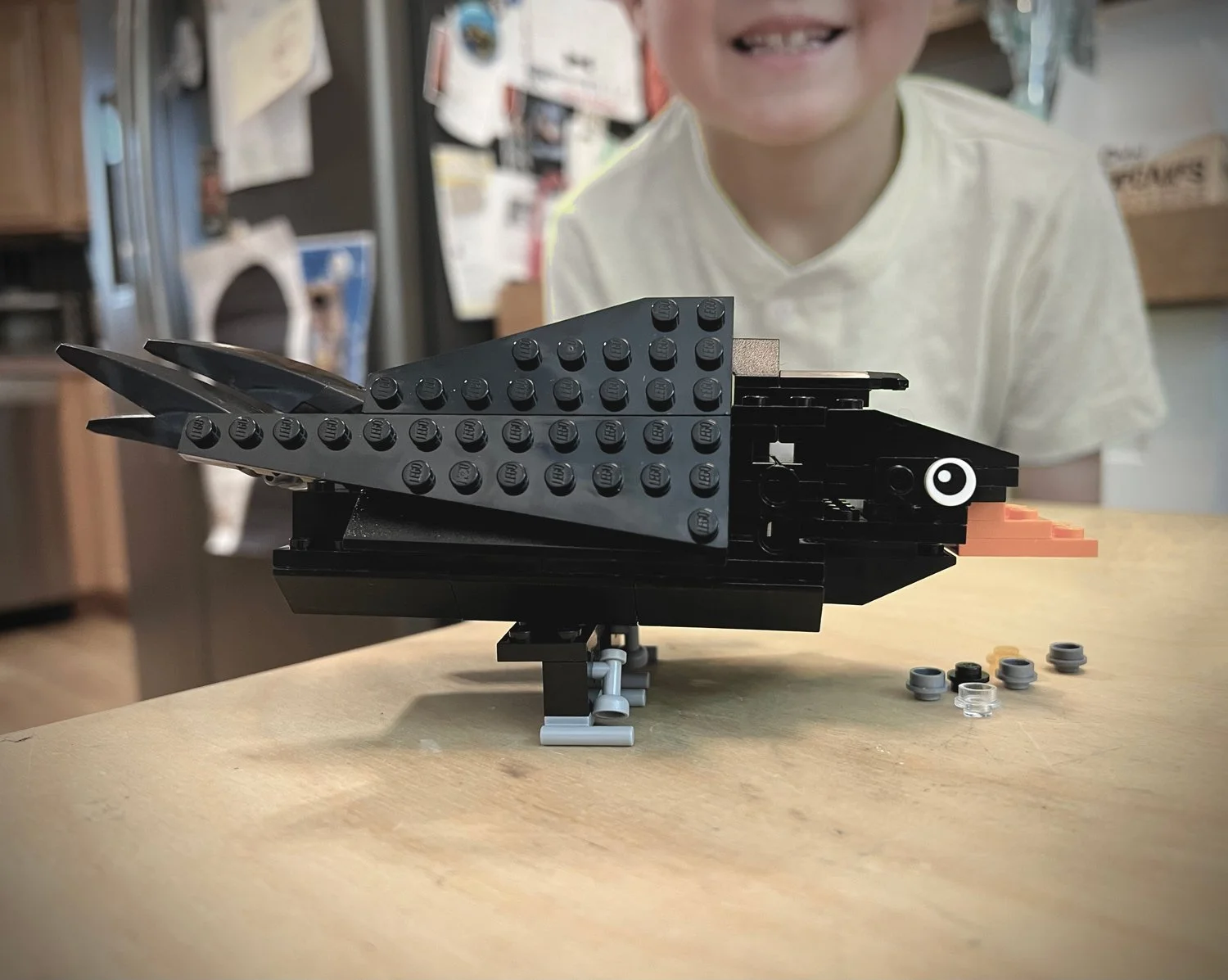We tried to save the bird.
We couldn’t.
My older son found it standing, unmoving, in the middle of the road. It must have fallen from its nest.
It perched on my finger as I carried it to a nearby tree where we hoped it could rest and heal.
But within a few minutes, it became clear that the little fellow wasn’t going to make it.
For a moment, I thought to shield my boys from this trauma. I could remove the bird and let them think it flew away.
But I knew better.
Death is a natural part of our world. We can’t hide from it.
My younger son was the most curious about the creature. I explained what was happening.
He cried.
We sat together quietly.
He asked if we could bury the bird if it died, and we did.
Later that day, my son asked me to come to his room to look at something.
He had recreated the bird using LEGOs. A memorial. It even had a limp left wing, just like the one we found.
Death. Mourning. Remembrance. Celebration.
It all comes in sequence. We can hide from the difficulties nature offers, but then we’re hiding from the learning and growth too. When we accept the natural way of things, we can find ways to create beauty.
From grief, creativity. From death, new life.

